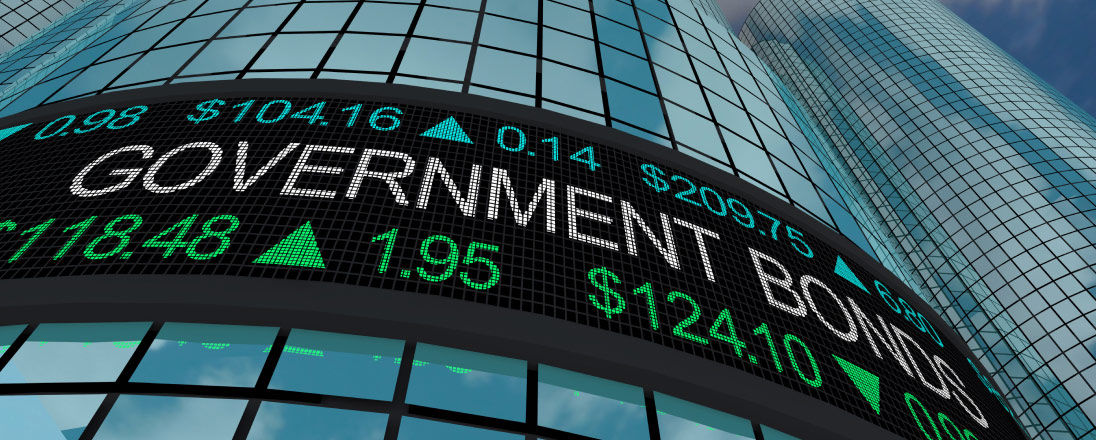What happens when you doubt the power of bonds?
Bond skeptics proved wrong – again.
Article published: May 28, 2025

I used to think that if there was reincarnation, I wanted to come back as the president or the pope or as a .400 baseball hitter. But now I would like to come back as the bond market. You can intimidate everybody.
James Carville, political strategist
Ěý
Ěý
Doubt the power of bonds at your own risk.
Need proof? Just look at what happened in April.
Ěý
An established throne
First, let’s consider a basic fact: The bond market is huge and bigger than the stock market globally, despite the fact that stocks get all the media attention.
The total value of the global equity market was $130.4 trillion at the end of 2024, with the U.S. having the largest share, according to industry data. The total value of the global bond market was $142.1 trillion, with the U.S. also having the largest share.
Fast forward to President Trump announcing his tariff plans in early April, which broadly slapped a 10% tariff on imports from all countries and much higher tariffs on critical trading partners. The tariffs were higher than expected and many of the details around them were uncertain, delivering a shock to the stock market.Ěý
While stock prices plunged, bond prices, specifically U.S. Treasurys, rose. They have historically functioned as a safe haven for investors during times of heightened stock market volatility because they’re backed by the U.S. government. (As we’ve mentioned in a recent column, bonds can be a highly effective equity diversifier, even if bond and stock prices may move in the same direction at times.)
Ěý
Bonds trump tariffs
The week following the announcement, questions began to swirl around the safe-haven status of U.S. Treasurys. At that point, bond and stock prices were both falling, and the U.S. dollar had weakened against major currencies, as well. The implications were bad, potentially very bad.
Then, bam: Trump announced a pause in his tariff plan. After the announcement, the president said, “The bond market is very tricky. I was watching it,” adding, “… I saw last night where people were getting a little queasy.”
Lesson learned. Don’t mess with the bond market.
Ěý
“Safe haven” doesn’t mean no volatility or zero risk
To be clear, bonds were falling for a number of reasons, including tariff-driven inflation fears and hedge-fund selling. However, selling due to concerns around U.S. Treasurys’ safe-haven status was among the most serious.
Why?
The U.S. dollar is the leading global reserve currency held by central banks, mainly through their massive holdings of U.S. Treasurys, which helps their safe-haven status. To give you sense, foreign central banks owned $6.6 trillion in U.S.-dollar denominated assets at the end of 2024, according to the International Monetary Fund. Euro-denominated assets ranked a distant second at $2.3 trillion.
Tariffs and other aspects of Trump’s foreign policy threatened relationships with the largest U.S. Treasury holders. If they became major sellers – crippling the safe-haven function of U.S. Treasurys – it would cause major market dislocations globally and the cost of U.S. debt could spiral. A “queasy” prospect indeed.
Ěý
Where we go from here
The U.S. bond market has experienced a greater calm as the U.S. hammers out trade deals.
But concerns around the all-out safety of U.S. Treasurys linger close to the surface and have been emerging with varying intensity for years, partly due to ballooning U.S. budget deficits. (Note that Moody’s took away its top rating of U.S. Treasurys in May mainly because of ongoing fiscal deficits.) Those concerns are only exacerbated when there’s uncertainty around U.S. economic and foreign policies.
We take doubts around the safe-haven status of U.S. Treasurys seriously.
Bond investing will entail at least some volatility, even as bonds have been much less volatile than stocks historically. Although past performance doesn’t guarantee future results, ultimately, we believe the safe-haven function of U.S. Treasurys can draw strength from the U.S. dollar’s global reserve dominance, the size of the U.S. bond market and an interest in the stability of U.S. Treasurys by large foreign holders.
While tariff announcements were a shock to the markets, we think it will take much more to truly dethrone U.S. debt from its role in the global financial markets and in your portfolio.
This material was prepared for educational purposes only. Although the information has been gathered from sources believed to be reliable, we do not guarantee its accuracy or completeness.
AM4491721, AM4573718
.jpeg)



